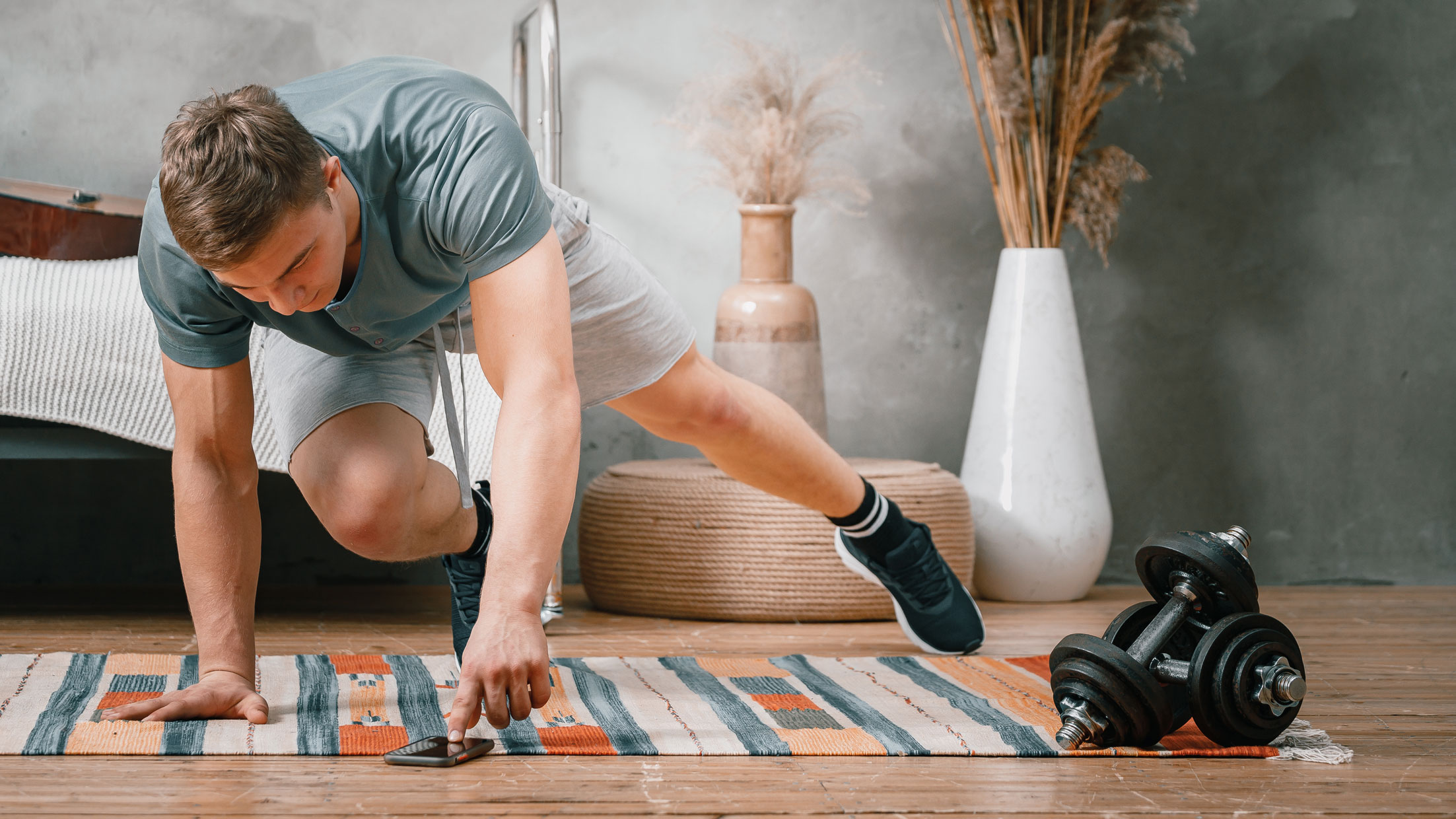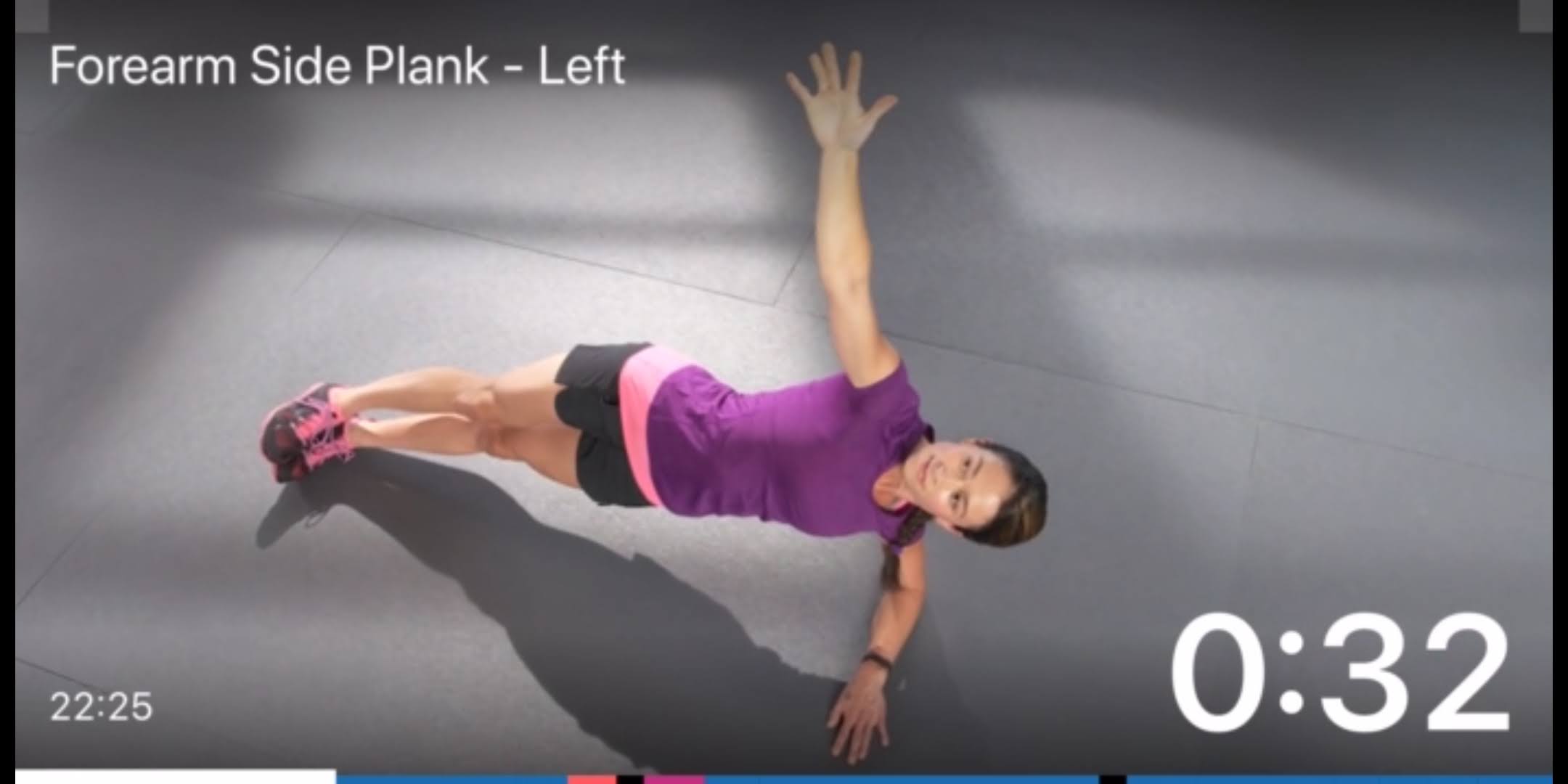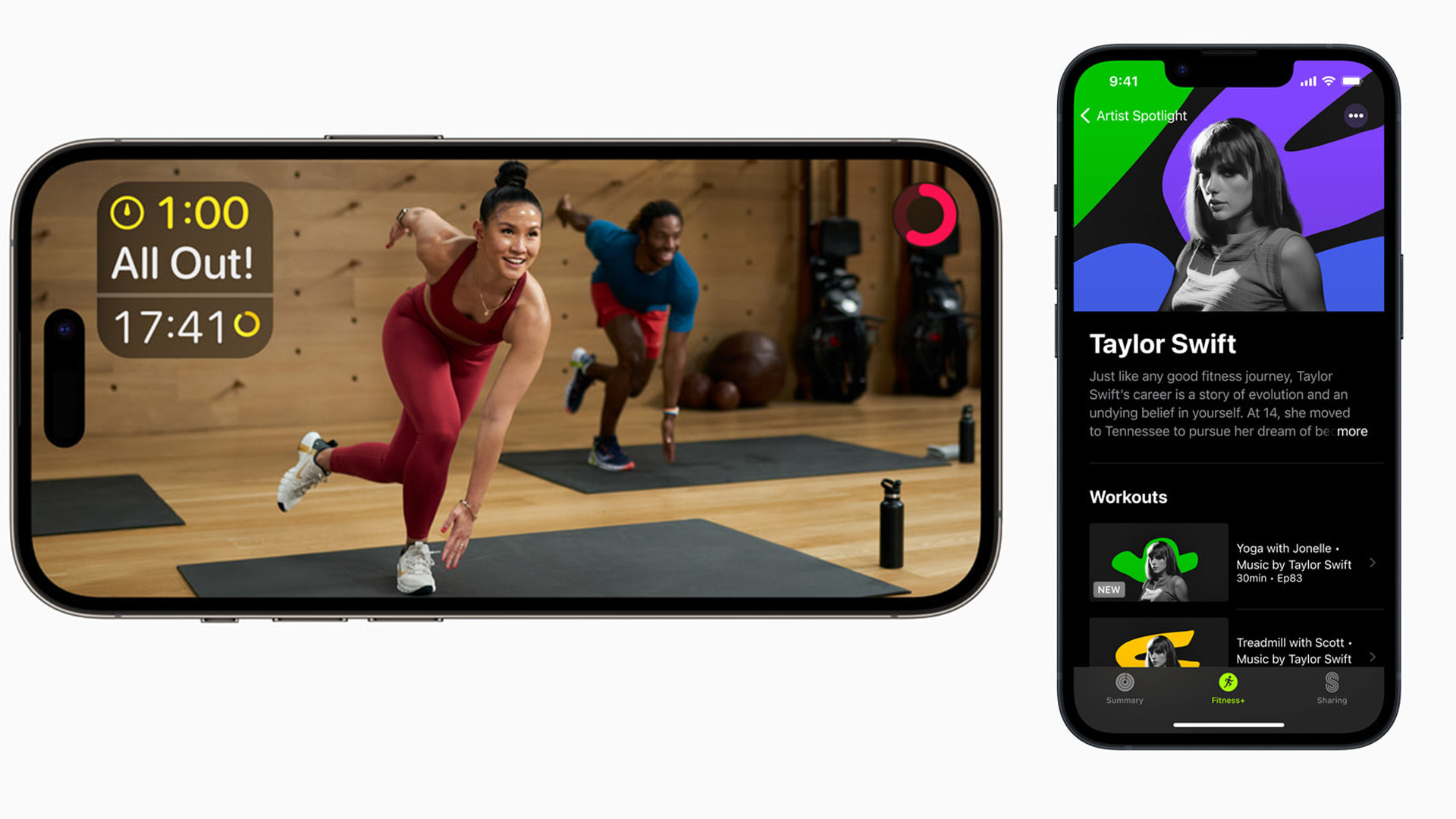Google and Apple's health experts tell us the secret to keeping your new year’s resolutions
What is “scaffolding” and how can it help you get fit?

Sign up for breaking news, reviews, opinion, top tech deals, and more.
You are now subscribed
Your newsletter sign-up was successful
Giving up already? When it comes to setting and keeping new year’s resolutions, there’s lots of advice out there – some of it from us. In fact, we’ve just wrapped up our own series of healthy how-tos, Get Fit for ‘23, designed to help you stick to your health wellness and fitness goals.
However, setting a goal and sticking to it are two very different things. If you want to lose weight in 2023, you might write that down as a goal. Actually dropping pounds in a healthy, sustainable way requires consistency, dedication, and a commitment to go beyond yo-yo dieting and fitness fads. It requires you to keep your attention on the prize.
So, we talked to some people who are experts in keeping people’s attention. Companies like Apple and Google, the latter being the parent company of Fitbit, have sunk hundreds of hours and millions of dollars into keeping their user bases integrated and active. Apple wants you to care about closing the activity rings on your Apple Watch. Likewise, Fitbit wants you to hit your Active Zone Minutes (check out our best Fitbit list for more on AZM), and they've spent time and money ensuring its users care about hitting their goals. So how do they keep you engaged?
The key, as it turns out, is something called “scaffolding”, which is going to be one of the terms we’ll be using more often in 2023. Scaffolding, according to Megan Jones Bell, Clinical Director of Consumer and Mental Health at Google, is about taking small, achievable steps to build good habits from the ground up.

This can be something as simple as standing up each time your fitness tracker tells you to do so, or walking, using a bicycle or one of the best electric bikes to cardio-commute to work, or choosing to swap an unhealthy snack for a piece of fruit once per day. Once you’ve built one habit, you can add another one on.
“Big, audacious goals can be great and absolutely have a place in our health and wellness journeys,” says Bell. “Even if your goals are grand, the steps you take towards them need to be broken down into smaller pieces to be achievable. The term ‘scaffolding’ can be a helpful way of thinking about how you set yourself up for success in establishing new routines over time.
“As you plan your 2023 goals, think about ways to start your health and wellness journey with small, achievable steps so that you build from a strong foundation first. This fosters self-efficacy, and the belief and confidence that you can make changes. This is a key ingredient in effective behavior change and growth.
Sign up for breaking news, reviews, opinion, top tech deals, and more.
“It’s a great idea to start with the fundamentals of wellness like focusing on drinking more water, creating the conditions for more restful sleep, and building a mindfulness routine. These fundamentals can help 'scaffold' you towards goals like healthy weight management or running that 10K you’ve always dreamed about.”

Apple’s VP of Fitness Technologies, Jay Blahnik, is one of the minds behind Apple Fitness Plus. In an exclusive interview with TechRadar, he reveals that he shares this same design ethos when it comes to putting together an app to influence his user’s behavior towards more positive outcomes. Achievable goals, such as short workouts, are the key to getting people started.
“We give our shorter workouts just as much love as we give the longer workouts, and we feel like that's a really strong way to help people try something new. ‘Short’ is always the way that you can reduce that intimidation factor. If you're brand new to something, small steps are the only way to be successful because it's all you can do.
“We've thought about that deeply with the design of the Apple Watch, such as how can you make progress on your exercise ring one minute at a time, rather than feeling like you have to do 30 minutes consecutively.
“When it comes to Fitness Plus, we hear all the time from users that say, ‘I just couldn't even visualize myself being on a bike for 45 minutes, but boy, 10 minutes wasn't bad.’ They enjoy it, and then all of a sudden they want to try more. It's motivating to have a little success.”
How you can incorporate scaffolding into your everyday life
What Apple and Google have done is "gamify" the workout process. If you play a video game, every little "ping" noise you get when you achieve a small goal conditions you to want more, and the most compelling, moreish games have tons of stars, rings or points to collect to keep you addicted.
You can hack your brain to want to work out and get healthy by starting small and hitting easy goals. If your goal is to get healthier in 2023, here are a few ways to begin:
- Do a 10-minute low-impact YouTube workout before or after work, such as a HIIT workout if you want to lose weight, or a calisthenics workout to gain muscle.
- Do a simple food swap: every time you order something with fries, for example, swap it for a salad.
- On your desk at work, take a piece of paper and draw four small boxes. Each time you have a glass of water, put a tick in one of those boxes.
- Complete a challenge on your fitness device of choice, such as closing the rings on an Apple Watch, or hitting a steps goal on your fitness tracker.
Once you’ve chosen and completed one of these goals several times, you can start implementing a second goal. Replace the short YouTube workout with a longer one, take time to make a healthy lunch… you get the idea.
If your goal is something other than health-orientated – for example, saving money – your scaffolding steps might look different, but the principles are the same. Small steps help to hack your brain and gamify the process, making winning 2023 much more enjoyable.

Matt is TechRadar's expert on all things fitness, wellness and wearable tech.
A former staffer at Men's Health, he holds a Master's Degree in journalism from Cardiff and has written for brands like Runner's World, Women's Health, Men's Fitness, LiveScience and Fit&Well on everything fitness tech, exercise, nutrition and mental wellbeing.
Matt's a keen runner, ex-kickboxer, not averse to the odd yoga flow, and insists everyone should stretch every morning. When he’s not training or writing about health and fitness, he can be found reading doorstop-thick fantasy books with lots of fictional maps in them.